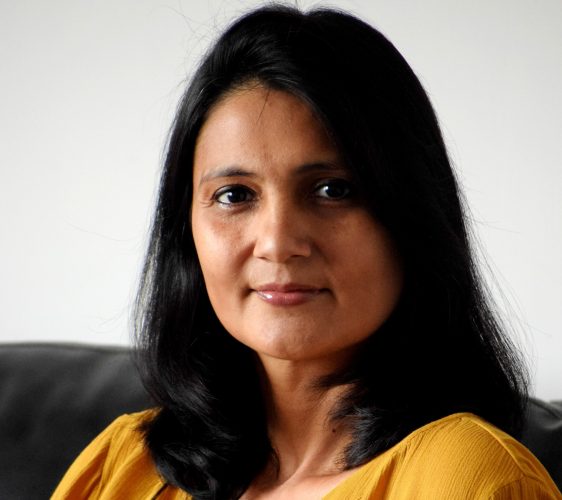In October 2022 Proteas batsman David Miller took to social media to share his grief over the demise of a child. His followers quickly speculated that it was his daughter and went berserk condoling him on the terrible loss. As if that wasn’t bad enough, multiple news outlets picked it up and without taking time to verify the authenticity of the news, further misreported it. It was later discovered that she was Miller’s die-hard fan and suffering from cancer. The unfortunate incident tells us a lot about who we have become as humans and the culture we are propagating. From Miller’s social media post it was more than evident that the child was close to him, and her loss had left him devastated. In such a time of bereavement, the last thing he would have expected was to address this kind of situation.
I can understand the urgency of media houses to break the news and the cut-throat competition that digital platforms face to be the first to do so, but I will never understand nor will I accept it at this cost. This isn’t the first time that ‘fastest finger first’ has got digital news platforms in a terrible tangle. And sadly it will not be the last. But who cares about a fellow human’s mental condition when the stakes are so high. For haven’t we come to believe that being the first is what only counts and so in this case, to be the first to report a story or as it turned out, misreport it – preceded everything.
The root of this is partly our cultural fixation with the coveted position. Our celebration of the one that comes first is so obvious that second or any number next, seems inconsequential, and is equated to failure. From childhood, the most formative years of a child’s life, the importance of being first is emphasised, or should I say overemphasised. And as children it doesn’t take them long to learn that coming first means accolades and rewards, more love and appreciation from elders in the family, elevation of status within extended kin and a place of pride, sometimes even envy, amongst neighbours. So much so that everything seems fair in the race for getting up there.
Since there’s so much riding on getting to this position, apart from the short routes, there’s always the risk of unethical practice creeping in as well. And who better than authors can testify to the pressures of the numbers game and what it entails. Every single day one is reminded via a social media DM how unsuccessful we are as professionals and how all our hard work that goes into writing a book comes to naught unless the book is number one on some or all of the many lists that rank books. This well-wisher then offers an irresistible (for those who aren’t morally strong or ethically sound) opportunity for paid reviews with even a choice to write our own review and select a star rating of our choice.
From childhood, the most formative years of a child’s life, the importance of being first is emphasised, or should I say overemphasised. And as children it doesn’t take them long to learn that coming first means accolades and rewards, more love and appreciation from elders in the family, elevation of status within extended kin and a place of pride, sometimes even envy, amongst neighbours.
After all, our individual choice is what it all ultimately comes down to!
Dr. Bruce Weinstein, popularly known as ‘The Ethics Guy,’ and author of the book titled, Is It Still Cheating if I don’t Get Caught, believes that an individual’s conduct and the way one chooses to act, determine who they are. I remember one of my first lessons in honesty was in the classroom when our Hindi language teacher shared with us the popular ‘kettle’ story in which a young Gandhiji refuses to cheat when he doesn’t know how to spell ‘kettle’ and rather gets the spelling wrong than follow his teacher’s prompt, who wants his students to make a good impression upon the Educational inspector on a school visit.
So while the end outcome is important, the means matters as much and this principle children need to imbibe from an early age. In an article on Education.com about the importance of teaching children ethical behaviour, Michael Josephson, Joseph & Edna Josephson Institute of Ethics’ founder and President, emphasises on the role of parents in this regard and their need to define family values and reinforce them for children to follow. While laying out the road map to a child’s goal in life, parents must stress on cornerstones such as values and ethics that build a child’s character. One way to do that is to shift the focus from ‘reward for result’ to ‘reward for effort, perseverance and family values’. When these virtues are celebrated with as much enthusiasm as we celebrate their achievements, children grow up believing in their value.

In his book Dr. Weinstein advocates living ethically, terming it the ‘only way to live well’, and goes on to suggest an easy way to ensure children choose to do right over wrong. He outlines five basic ideas, which he calls, ‘Life Principles’ that include avoiding harm, making things better, being fair, being loving and respecting others – the foundation that will guide children in conducting themselves with honesty and fairness.
Children must also have ideal role models they can emulate. Whether it’s a sportsman, a superhero, a celebrity or their own parents and guardians. One must remember that children do as they see. So as grownups, one has to be conscious of the impression they are leaving while making their own life choices while dealing with colleagues, family or friends in the presence of children. If children get the idea that it’s okay to fake things, to take the short route because that entails less work or to resort to foul play to achieve success – there’s a good chance they will make the same choice in their life.
Image courtesy: Amazon
Lesley D. Biswas is a freelance writer and children’s author based in Kolkata. Her interests include nature, bird photography and cricket.








